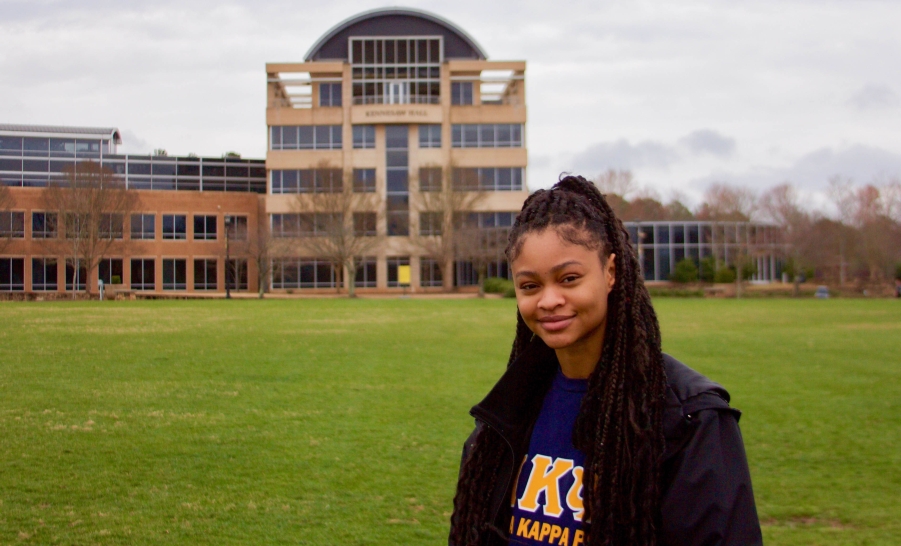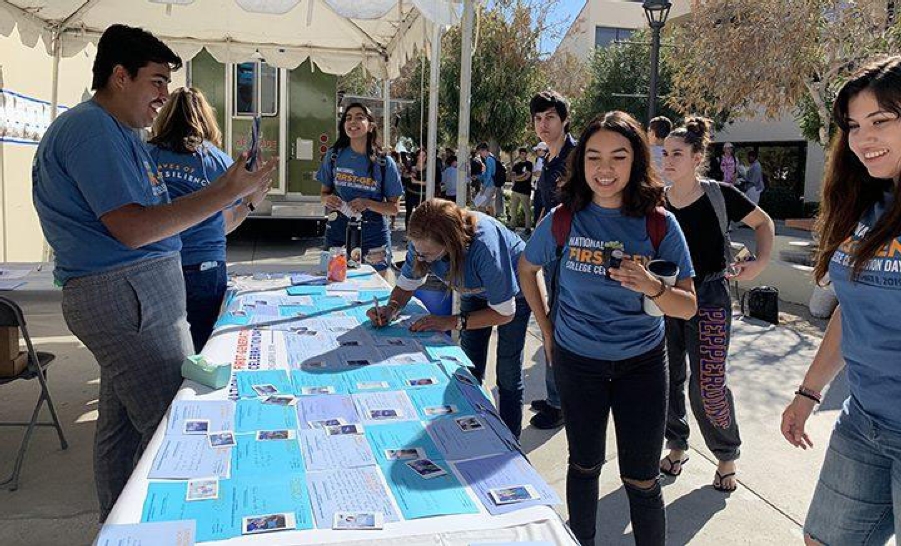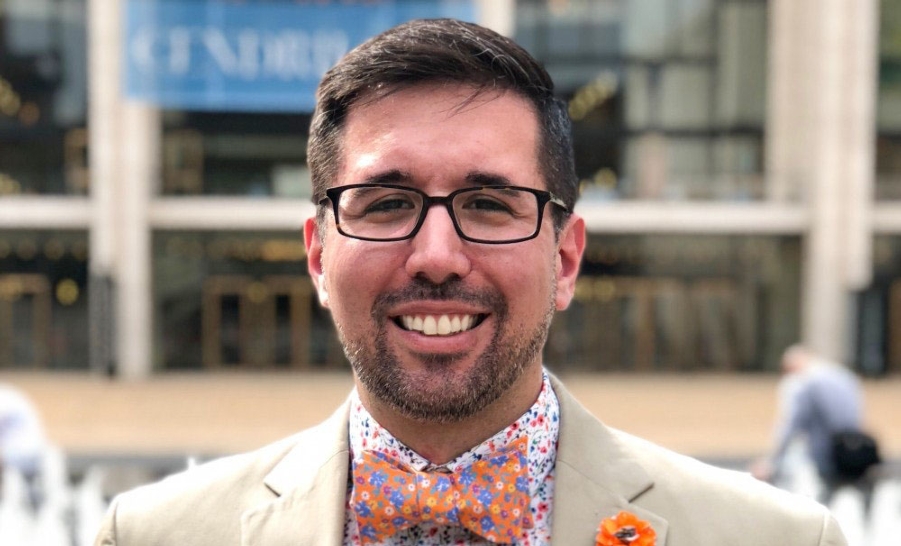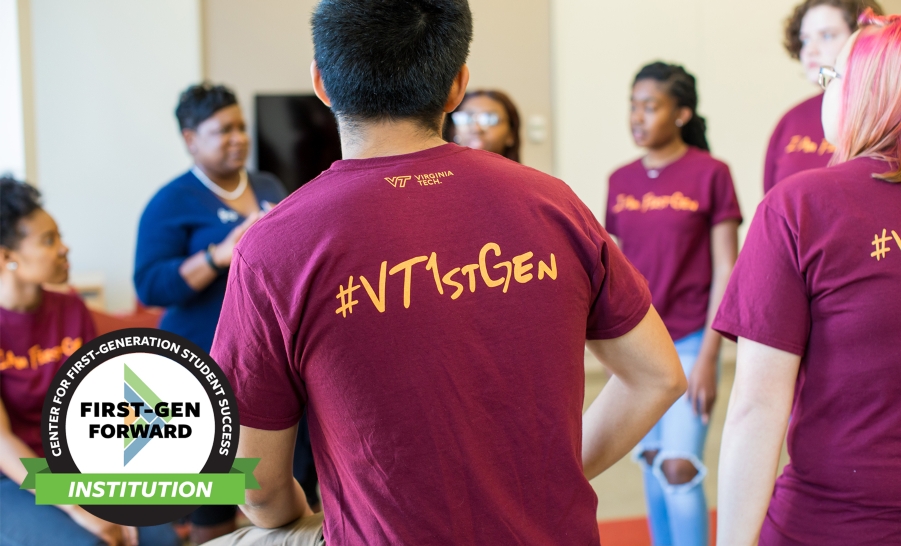Elevating First-gen Voices: Starting Your Own First-gen Publication
Yvette Gutierrez-Morfin & Gretchenrae Campera, M.Ed., Seattle University / FirstGen Forward / October 07, 2020
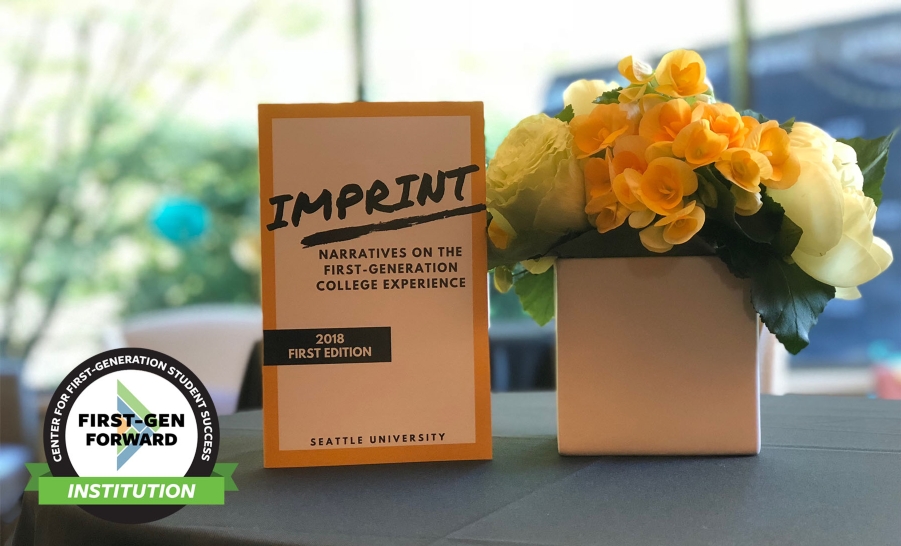
Imprint is a compilation of creative writing and scholarly work from Seattle University’s first-generation college community. Imprint is produced annually and released in the spring quarter at our First-Generation Community Celebration. A committee of staff, faculty, and students mentor our selected contributors through the creative process.
Imprint is rooted in three values:
-
Visibility: Increasing visibility of the University’s first-generation community
-
Scholarship: Helping the first-generation college community own their identity as scholars by providing an opportunity for someone to experience a supportive writing process and publish work
-
Mentorship: Providing contributors with the opportunity to cultivate mentoring relationships through the writing process
Imprint’s first edition in 2018 published pieces from nine contributors. In 2019, the publication featured 12 contributors. In 2020, Imprint featured 10 contributors. In 2018 and 2019, over 500 hardcopies were distributed each year to students, staff, faculty, alumni, and university leadership.
Here’s what an Imprint committee member said about their experience:
“As a committee member for Imprint, I love the experience of supporting my mentees in developing the narrative for their pieces. Through mentoring, I have been able to share my own first-gen experiences, connect to a first-gen student like me, and bond over our similar stories. The process helped me create a friendship that I would not have experienced otherwise!”
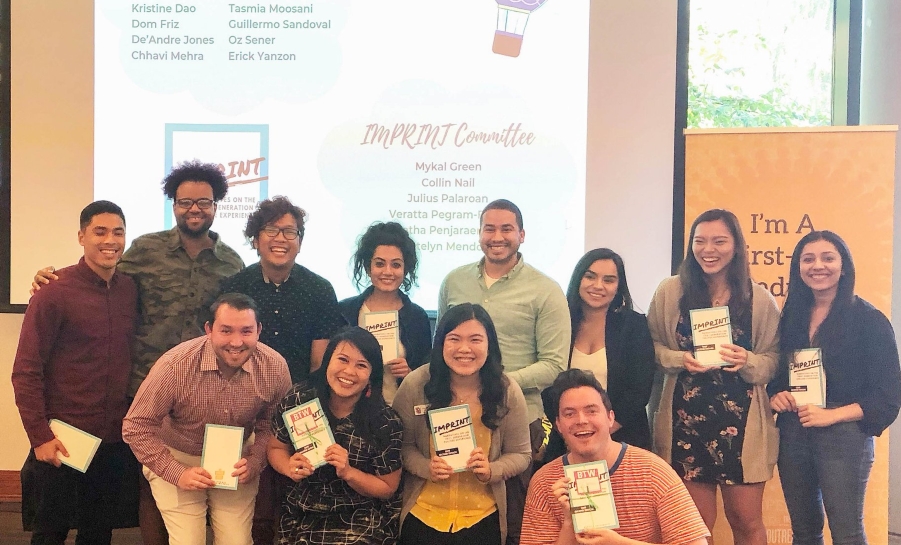
As for our contributors…
“I did Imprint because it gave me a platform to share my voice and my first-gen story. A lot of the time, people hold a linear narrative of who and what the story of a college student is, especially international students. So, I wanted to bring attention to the fact that each student has a unique story to tell. I also did Imprint to set a strong example for my fellow first-gens that their voice and their story matters. Honestly, I learned to appreciate how far I've come and to believe in myself more.”
Why You Should Start Your Own Publication:
-
This publication can be used strategically to amplify the voices of individual first-gen students and the first-gen community.
-
It is a unique way to connect with staff, faculty, students, and alumni that isn’t an event.
-
Committee members hone mentoring skills and contributors develop their writing and voice.
-
Alumni contributors provide value and affirmation to current first-gen students.
Through mentoring, I have been able to share my own first-gen experiences, connect to a first-gen student like me, and bond over our similar stories.
How You Can Start Your Own Publication:
-
Identify a committee of people, including campus partners and alumni, willing to serve as writing mentors. This committee can start at any size. To be effective, committee members should be assigned no more than two contributors to mentor.
-
Meet with your committee. Create the vision and the values of your publication.
-
Identify your timeline. Seattle University asks for proposals in the fall quarter. Writing takes place in the winter quarter over the course of three meetings. The final version is due at the end of winter quarter. You may need to adjust your timeline based on your academic calendar and preferences.
-
Advertise and execute your marketing plan. How are you communicating to potential contributors that this is worth their time and investment?
-
Develop guides for mentoring meetings. It’s helpful for committee members to have a little bit of structure. What should they talk about each time they meet with their contributor? How should they prepare for each meeting?
-
Decide how to publish. How do you make campus aware that this exists for them to read? Is this an online only publication? Will hard copies be available?
A lot of the time, people hold a linear narrative of who and what the story of a college student is, especially international students. So, I wanted to bring attention to the fact that each student has a unique story to tell.
Imprint at Seattle University is still growing, and the possibilities remain limitless. In the short term, we hope to increase the number of contributors and readership on campus. The publication can go in many different directions in the long-term. It can serve as a launching point for the start of a first-gen alumni network or connection to local first-gen high school students hoping to go to college. It can also become an academic journal one day.
One of the biggest benefits to Imprint is that it is hyper-localized. It provides a window into the stories and needs of our community. As you begin your own publication, you will be able to assess what your publication can and will do in your context. Your publication will begin with uplifting student voices and experiences. It can and will take on a life of its own from there.
For more inspiration, more information, and the 2020 edition, visit Seattle University’s Imprint website here.

